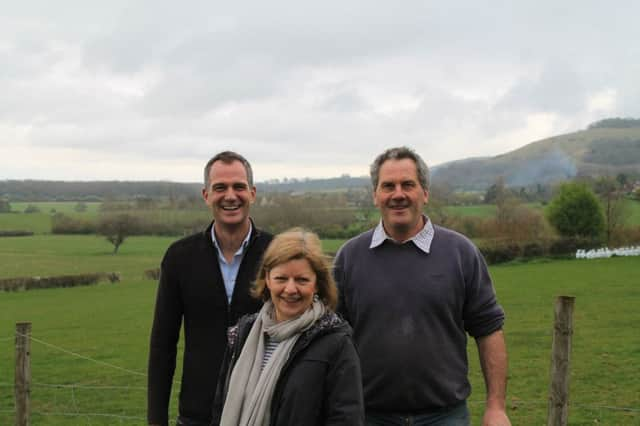Hove MP hears farmers' concerns over post-Brexit future


Farmers met at Manor Farm in Poynings on Friday (March 31), at the a sheep and arable crop enterprise owned by brothers Mark and Gary Lee, just five miles north of Brighton and Hove.
Peter Kyle, the Labour MP for Hove, and Baroness Jones of Whitchurch, Shadow Minister for Environment, Food and Rural Affairs in the House of Lords, also joined the meeting.
Advertisement
Hide AdAdvertisement
Hide AdFirst stop was the lambing shed, where farmer Mark Lee, who is chairman of Mid Sussex NFU, explained how the ewes and their lambs are cared for, before they are allowed out onto the Downs to graze together.
The discussion inevitably moved onto the impact of Brexit on agriculture, particularly on the South Downs.
Mr Kyle said: “I’m very worried that the Government isn’t listening to farmers’ concerns over Brexit. It’s why I’m urging for the Brexit process to be slowed down until we can see the detail and how our hard-working farmers will be affected. We simply cannot get into a situation where imported food is allowed in cheaply as part of hastily thought-out trade deals.”
James Osman, Sussex NFU adviser, said: “NFU members were really pleased to be able to make the MP aware of the challenges that British farmers face post-Brexit and to put Baroness Jones of Whitchurch fully in the picture too.
Advertisement
Hide AdAdvertisement
Hide Ad“We are very proud of our world-class production standards in UK agriculture. Farmers remain deeply concerned about future trade deals that the UK might strike with other countries that could adversely impact British agricultural production.
“We’re adamant that we do not want trade deals that result in our farmers seeing their prices undercut by imported food produced to lower environmental, food safety and animal welfare standards.”
The meeting also discussed the future of the South Downs National Park, recognising the critical role of agriculture in shaping and managing the iconic landscape of the South Downs.
Mr Osman added: “The South Downs are 85 per cent farmed and they are a fantastic environment for people to enjoy, sustaining valuable wildlife habitats while being significantly important to commercial food production. Post Brexit, the NFU is keen to secure new environmental schemes that encourage farmers to create and protect habitats while maintaining food production.”